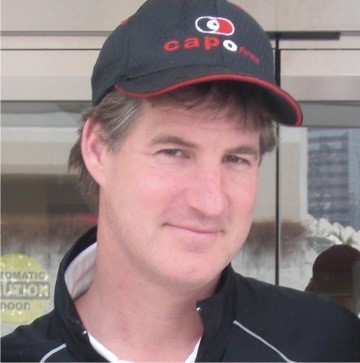
- dpedersen@ucsd.edu
-
Office: SSB 294
Mail Code: 0532

David Pedersen is a historically minded anthropologist with a joint degree in both disciplines (University of Michigan, 2004). His research and teaching focus on capitalist relations during the 20th century and up to the present in the hemisphere of the Americas. His first book, American Value: Migrants, Money, and Meaning in El Salvador and the United States (Chicago Studies in Practices of Meaning, University of Chicago Press, 2014) explores El Salvador and its relations with the United States as both countries have been reshaped by several decades of transnational migration and remittance circulation. Pedersen serves on the advisory board of UC San Diego’s Center for Comparative Immigration Studies (CCIS) and is a faculty affiliate of the Ethnic Studies Program.
Pedersen is writing a new book titled Capitol Crisis: Memory, Imagination and the Breaking of Habit that examines the relationship between contemporary patterns of capitalist restructuring and historical tendencies expressed in the January 6, 2021 protest in Washington, DC. The book begins and ends at the US Capitol that day but travels throughout the country to examine changing habits of human feeling and action as these relate to memory and imagination. Pedersen serves on the executive committee of the Science Studies Program (SSP) and is an affiliate of the Kavli Institute for Brain and Mind at UC San Diego.
Pedersen also maintains a research and community engaged learning project focused on San Diego Bay. Together with colleagues based at Scripps Institute for Oceanography (SIO), he has been the recipient of a grant from the National Oceanic and Atmospheric Administration (NOAA) that supports interdisciplinary research on ecotoxin buildup in the Bay and local seafood harvesting and consumption practices among San Diego residents. Pedersen also has received an award from the UCSD Changemaker Faculty Fellows Program to develop a new course and student internship program focused on SD Bay. Pedersen participates in the “Climate Change and Human Solutions” undergraduate degree program and serves on the advisory board of the Program for Interdisciplinary Environmental Research at SIO.